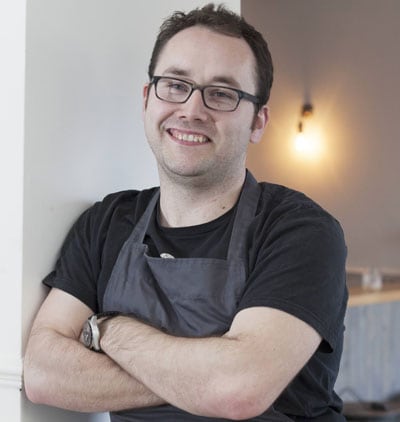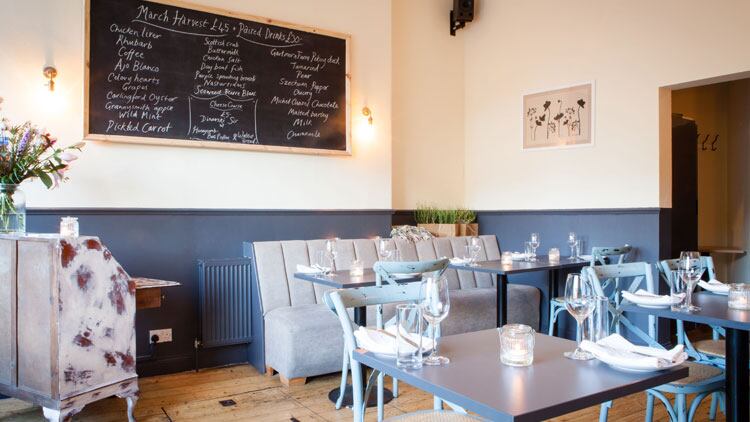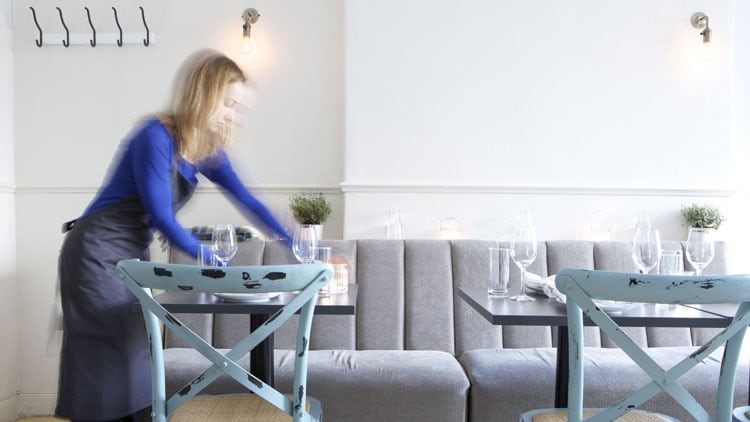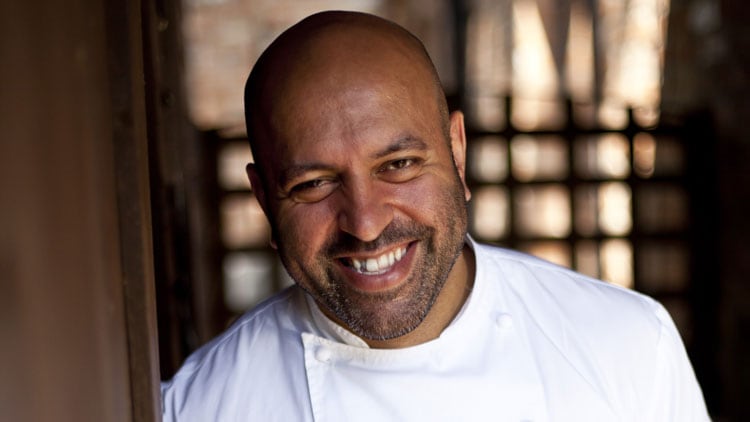Four years after opening his Edinburgh restaurant Aizle, chef Stuart Ralston hit a turning point. The ambitious dining room, which has no fixed menu, was flourishing on paper with strong sales and positive reviews from Scottish critics, but the long hours running the restaurant were starting to take a personal toll. “I wasn’t in a healthy situation,” says Ralston, who launched the site with his wife Krystal Goff. “I didn’t have any energy and was barely seeing my family.”
Clearly Aizle needed to change, so in early 2018 Ralston decided to switch the restaurant from a five to a four-day week while keeping staff on the same wages.
The plan required a major rethink of the site. The chef took out a loan to refit the 35-cover dining area, ripping out some of the fixed banquette seating to add in four extra covers, and began opening the restaurant at 5pm to allow more tables to be turned at dinner. He also spent £32,000 on a custom-built stove to allow chefs to get ahead on prepping dishes before service. Aizle’s set-six-course tasting menu rose in price from £45 to £55 (it will increase to £70 in September).
“We had to cram the same covers we did in five days in to four, so we needed to be more efficient,” says Ralston. “Logically it doesn’t make sense to get in debt and reduce the amount of services you do, but I was confident it would work out in the long-term.”
So how has it played out in practice? Sales are up around 7% on the previous year and growing, and the consensus is that staff are happier with their extra day off. Ralston admits he is still trying to reach a “sweet spot” for everyone, as the team often work long hours over the four days. “We’re averaging about 56-58 hours for chefs a week, which is an issue I want to address. We’re trying to get that down to 50 ideally.”
Industry criticism
Aizle’s initial switch to a four-day week received both local and national press coverage, and Ralston says more diners are making repeat visits since the change. “The customers know what we’ve done and are part of the journey and come in as they know it’s helping us. We’ve built up a good reputation in Edinburgh.”

But the attention also saw the knives come out online, leaving Ralston frustrated at some of the criticism from within the hospitality industry. In the UK several high-profile restaurants including Le Gavroche, The Raby Hunt and Restaurant Sat Bains have reduced opening hours over the last few years, while Noma in Copenhagen has also raised prices and moved to a four-day week. At a time when operators complain of staff shortages and long-hours, Ralston feels others need to be more open to changing their approach.
“I’ve read a lot of stuff online of people [in the industry] being negative towards what I’ve done, but I think that’s narrow minded. Restaurants are changing, and we need to change for staff and have a different look at it. There are too many people that become sick or dependent on drugs or alcohol, that goes along with working too many hours and not having a good life.
“It’s easy for people to say [this approach] is not sustainable. Maybe it’s not for people who’ve got too many overheads or have spent too much money on refits. That’s one reason I never took a £200,000 loan to refurbish the restaurant, because that money would be tied up.” He adds that Aizle has always made a profit and increased sales in the five years it has been open.
But Ralston does acknowledges the formula can be tricky to get right. “Another restaurant down south messaged us and I saw they went to a four-day week and then closed afterwards. I do advise that it won’t suit everybody, you’ve got to do your maths.”
Looking ahead
One year on from making the change at Aizle Ralston says his health has “reset” and he has been able to spend more time with his family and young son. An extra chef has been hired to take on some of the strain while he looks at growing the business in other ways, with another possible restaurant in the pipeline.
“There’s a big need in Edinburgh for more casual restaurants of quality," he says. "We’d keep Aizle as a smaller fine dining place and open something larger that’s a bit more fun and laid back. I wouldn’t say tasting menus are particularly new in Edinburgh anymore, in the past few years I’ve seen three or four places with a similar concept close.”

The plans have also been sparked by an improvement in staff retention, with the chef keen to create new opportunities for his long-standing team members. “My staff at Aizle are all creative people, so it’s a waste of talent if we can’t grow that in to a new branch,” he says.
Aizle celebrated its fifth birthday in April, and Ralston is positive about its future. But looking back he wishes the move to a four-day week had come sooner than it did. “All the things I hoped would happen have done so. My staff are happier and I’ve got a healthier lifestyle. If we did another restaurant I would extend the same idea to a new site. If I hadn’t made the change there’s no way I would be in the position I am now.”


